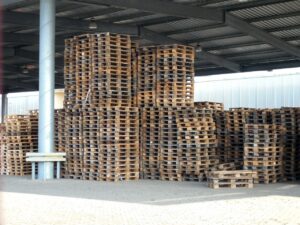When choosing materials for construction, furniture, or everyday products, bamboo and aluminum often emerge as contenders due to their distinct characteristics. Both materials are versatile and widely used, but they cater to different needs and priorities. In this blog, we’ll delve into the pros, cons, FAQs, and practical tips for deciding between bamboo and aluminum.
Overview of Bamboo and Aluminum
Bamboo: A natural, renewable material known for its sustainability, lightweight nature, and strength. It is commonly used in furniture, flooring, and even construction.
Aluminum: A lightweight metal prized for its durability, corrosion resistance, and versatility. It’s used in everything from construction to kitchenware and transportation.
Pros and Cons of Bamboo
Pros:
- Eco-Friendly: Bamboo is a renewable resource that grows rapidly and absorbs large amounts of CO2.
- Lightweight and Strong: Despite being lightweight, bamboo has excellent tensile strength, often compared to steel.
- Aesthetic Appeal: Its natural, warm look makes it ideal for furniture and decor.
- Versatility: Used in a variety of applications, from flooring to textiles.
- Biodegradable: Bamboo decomposes naturally, reducing long-term environmental impact.
Cons:
- Moisture Sensitivity: Requires treatment to prevent mold and water damage.
- Durability Concerns: Prone to wear and tear without proper maintenance.
- Processing Requirements: Needs careful treatment to enhance durability and pest resistance.
- Limited Structural Use: Not as strong as metals for heavy-duty applications.
Pros and Cons of Aluminum
Pros:
- Durable and Long-Lasting: Resistant to corrosion, rust, and extreme weather conditions.
- Lightweight: Easy to handle and transport, making it ideal for various applications.
- Recyclable: Aluminum is one of the most recyclable materials, with minimal quality loss.
- High Strength-to-Weight Ratio: Strong enough for structural uses without adding excessive weight.
- Low Maintenance: Requires minimal upkeep compared to organic materials.
Cons:
- Energy-Intensive Production: Mining and refining aluminum require significant energy and resources.
- Cold and Industrial Look: Lacks the natural warmth and aesthetic of bamboo.
- Cost: Initial production costs can be high compared to bamboo.
- Heat Conductivity: Conducts heat easily, which may not be ideal for certain applications.
Environmental Impact
Bamboo:
- Bamboo is one of the most eco-friendly materials due to its rapid growth and ability to regenerate without replanting.
- The cultivation process has a low environmental footprint, but chemical treatments may reduce its overall eco-friendliness.
Aluminum:
- Aluminum production is energy-intensive and contributes to environmental degradation.
- However, its recyclability offsets some of its environmental impact, making it a more sustainable option for long-term use.
FAQs
1. Which is stronger, bamboo or aluminum?
- Aluminum is stronger overall, especially for structural applications, but bamboo’s tensile strength can rival steel in specific scenarios.
2. Is bamboo more sustainable than aluminum?
- Yes, bamboo is more sustainable due to its rapid growth and natural renewability, whereas aluminum requires significant energy for production.
3. Can bamboo replace aluminum in construction?
- Bamboo can be used in certain construction applications, but it’s not a full replacement for aluminum in heavy-duty or industrial projects.
4. Is aluminum recyclable?
- Yes, aluminum is 100% recyclable and retains its quality through the recycling process.
5. Which is better for outdoor use?
- Aluminum is better suited for outdoor use due to its resistance to weathering and corrosion, while bamboo requires treatment to withstand outdoor conditions.
Tips for Choosing Between Bamboo and Aluminum
- Assess Your Needs: For eco-friendliness and aesthetics, bamboo is a great choice. For durability and structural needs, aluminum is superior.
- Consider the Environment: Opt for bamboo when reducing your carbon footprint is a priority, and choose recycled aluminum to minimize environmental impact.
- Think About Maintenance: Bamboo requires regular care and treatment, while aluminum is largely maintenance-free.
- Evaluate Cost: Bamboo is often more affordable upfront, while aluminum offers better long-term value.
- Blend Materials: Consider using both materials in complementary ways for furniture, decor, or construction projects.
People also search for
- Bamboo vs aluminum comparison
- Sustainable materials: bamboo vs aluminum
- Bamboo furniture vs aluminum furniture
- Eco-friendly building materials
- Aluminum vs bamboo durability
- Lightweight materials for construction
- Renewable materials for furniture
- Aluminum recyclability benefits






